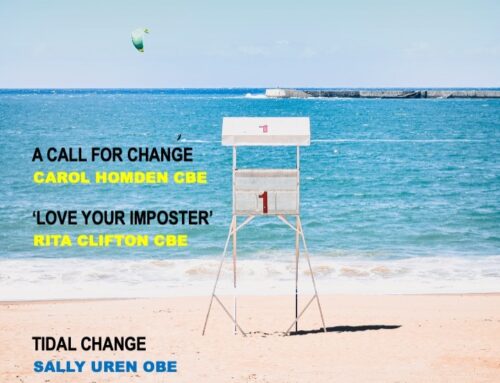Mixed Up Messaging – Food and Drink in 2021

We have long maintained that the food and drink we choose to purchase and consume says a lot about the kind of person we are. It is an expression of what we consider important to us and the values we hold dear. Coronavirus, climate change and Brexit have all had a profound impact on this, as well as on our outlook towards the sector in the UK.
At the end of 2020, FleishmanHillard UK commissioned new research to better understand how public opinion is ‘united’ or ‘divided’ across the nation regarding the impact of these three forces on the food and drink industry and how successful, integrated, communications can help the sector navigate this territory in 2021.
Our four principal findings are set out below:
- We are ‘united’ in our view that the pandemic has had the greatest impact overall on our food and drink habits during the past year. 60% of people considered coronavirus having the biggest impact on the food and drink we choose to purchase and consume, with Brexit and climate change tying for second place on 20% respectively.The pandemic means that our priorities are very much focused on the ‘here and now’. Food and drink companies should continue to communicate in an inclusive way to show they are meeting people’s everyday needs in a manner that authentically reflects their ethics, values and purpose. In practice, this means continuing to find solutions to the altered routines we currently adopt in lockdown and the new routines we will start to establish as businesses and local communities learn to live with coronavirus.
- We are ‘divided’ when we consider how each force has influenced the factors governing our decision to purchase. We asked the public to rank a range of eight factors they consider when buying food and drink products with Brexit, climate change and coronavirus in mind. While food safety was a top priority across all three forces, the public ranked food availability and food sustainability differently depending on whether they were talking about climate change or not.Businesses run the risk of sending out mixed messages to satisfy competing and conflicting concerns from their key audiences. They need to take a holistic view of their business practices and ensure they communicate coherently regarding these competing pressures. For example, educating and informing the public about how food science and technology can protect the planet while still ensuring our food and drink is safe to consume.
- We are often ‘divided’ when it comes to how much buying locally, buying safely and buying sustainably matters to us as individuals. Attitudes vary depending on whether we are talking about coronavirus, Brexit or climate change, and they also vary depending on our age, our ethnicity and where we live across the country. For example, older people (65+) are most concerned to know that their food is safe to consume; BAME communities are most concerned to have a wide variety of available foods; people living in Scotland are most concerned to buy sustainably; and, perhaps unsurprisingly, Leave voters are most concerned to buy British.As we seek to rebuild our economies and communities in the shadow of the pandemic, we are also pushing for the right to govern our own affairs in national and mayoral elections and are forging new trading and climate change relationships.Now that the UK is outside the EU, there is a huge opportunity for food and drink companies to take the initiative, define new agendas and celebrate diversity of opinion in the UK in ways that unite us rather than divide us.
In doing so, businesses can set out new ways to engage the public around the affordability and quality of local produce for example or showcase ways in which they are helping to promote the greening of the UK economy through investments in technology and skills.
- We are ‘united’ in our outlook that the industry has further to go if it is to reassure us that it can navigate these three forces successfully in the year ahead. Just under half our respondents thought that the industry would address challenges and exploit opportunities presented by coronavirus in 2021. This percentage dropped to around a third when considering Brexit and climate change.These three forces throw up difficult questions with few easy answers or solutions. But industry rhetoric will no longer ‘cut the mustard’ with a public that is increasingly used to seeing action happen at scale over short time frames. If it is possible to develop a vaccine in one year rather than ten, then why can’t the food and drink industry accelerate delivery against its own sustainability targets?Businesses in the food and drink sector will only manage and deliver against these expectations if they work more closely in partnership with a wider range of actors. ‘Going it alone’ will only perpetuate a winners v. losers dynamic. If businesses look to cultivate frameworks involving NGOs, regulators and investors then this might help to foster greater ambitions and a greater sense of collective urgency and responsibility in delivering against them.
In conclusion, almost 2000 years ago Epictetus said ‘It’s not what happens to you, it’s how you react to it that matters’. While many in the food and drink industry might be forgiven for feeling a little under siege over the past couple of years, they also remain the architect of their own destiny.
Our analysis has set out four clear ways in which communications plays an essential part in helping
companies and organisations navigate these forces, promoting and protecting their brand reputation and corporate licence to operate as they address the most urgent issues of our times.
FleishmanHillard’s TRUE Global Intelligence surveyed a nationally representative sample of the UK totalling 2000 respondents. Data collection took place in December 2020. If you would like to learn more about our findings please contact [email protected]
Liam McCloy
Partner & EMEA Lead for Food, Agribusiness, Beverage, FleishmanHillard UK
Instagram: @fleishmanuk
Twitter: @fleishmanUK
LinkedIn: https://www.linkedin.com/company/fleishmanhillard-uk


Mixed Up Messaging – Food and Drink in 2021

We have long maintained that the food and drink we choose to purchase and consume says a lot about the kind of person we are. It is an expression of what we consider important to us and the values we hold dear. Coronavirus, climate change and Brexit have all had a profound impact on this, as well as on our outlook towards the sector in the UK.
At the end of 2020, FleishmanHillard UK commissioned new research to better understand how public opinion is ‘united’ or ‘divided’ across the nation regarding the impact of these three forces on the food and drink industry and how successful, integrated, communications can help the sector navigate this territory in 2021.
Our four principal findings are set out below:
- We are ‘united’ in our view that the pandemic has had the greatest impact overall on our food and drink habits during the past year. 60% of people considered coronavirus having the biggest impact on the food and drink we choose to purchase and consume, with Brexit and climate change tying for second place on 20% respectively.The pandemic means that our priorities are very much focused on the ‘here and now’. Food and drink companies should continue to communicate in an inclusive way to show they are meeting people’s everyday needs in a manner that authentically reflects their ethics, values and purpose. In practice, this means continuing to find solutions to the altered routines we currently adopt in lockdown and the new routines we will start to establish as businesses and local communities learn to live with coronavirus.
- We are ‘divided’ when we consider how each force has influenced the factors governing our decision to purchase. We asked the public to rank a range of eight factors they consider when buying food and drink products with Brexit, climate change and coronavirus in mind. While food safety was a top priority across all three forces, the public ranked food availability and food sustainability differently depending on whether they were talking about climate change or not.Businesses run the risk of sending out mixed messages to satisfy competing and conflicting concerns from their key audiences. They need to take a holistic view of their business practices and ensure they communicate coherently regarding these competing pressures. For example, educating and informing the public about how food science and technology can protect the planet while still ensuring our food and drink is safe to consume.
- We are often ‘divided’ when it comes to how much buying locally, buying safely and buying sustainably matters to us as individuals. Attitudes vary depending on whether we are talking about coronavirus, Brexit or climate change, and they also vary depending on our age, our ethnicity and where we live across the country. For example, older people (65+) are most concerned to know that their food is safe to consume; BAME communities are most concerned to have a wide variety of available foods; people living in Scotland are most concerned to buy sustainably; and, perhaps unsurprisingly, Leave voters are most concerned to buy British.As we seek to rebuild our economies and communities in the shadow of the pandemic, we are also pushing for the right to govern our own affairs in national and mayoral elections and are forging new trading and climate change relationships.Now that the UK is outside the EU, there is a huge opportunity for food and drink companies to take the initiative, define new agendas and celebrate diversity of opinion in the UK in ways that unite us rather than divide us.
In doing so, businesses can set out new ways to engage the public around the affordability and quality of local produce for example or showcase ways in which they are helping to promote the greening of the UK economy through investments in technology and skills.
- We are ‘united’ in our outlook that the industry has further to go if it is to reassure us that it can navigate these three forces successfully in the year ahead. Just under half our respondents thought that the industry would address challenges and exploit opportunities presented by coronavirus in 2021. This percentage dropped to around a third when considering Brexit and climate change.These three forces throw up difficult questions with few easy answers or solutions. But industry rhetoric will no longer ‘cut the mustard’ with a public that is increasingly used to seeing action happen at scale over short time frames. If it is possible to develop a vaccine in one year rather than ten, then why can’t the food and drink industry accelerate delivery against its own sustainability targets?Businesses in the food and drink sector will only manage and deliver against these expectations if they work more closely in partnership with a wider range of actors. ‘Going it alone’ will only perpetuate a winners v. losers dynamic. If businesses look to cultivate frameworks involving NGOs, regulators and investors then this might help to foster greater ambitions and a greater sense of collective urgency and responsibility in delivering against them.
In conclusion, almost 2000 years ago Epictetus said ‘It’s not what happens to you, it’s how you react to it that matters’. While many in the food and drink industry might be forgiven for feeling a little under siege over the past couple of years, they also remain the architect of their own destiny.
Our analysis has set out four clear ways in which communications plays an essential part in helping
companies and organisations navigate these forces, promoting and protecting their brand reputation and corporate licence to operate as they address the most urgent issues of our times.
FleishmanHillard’s TRUE Global Intelligence surveyed a nationally representative sample of the UK totalling 2000 respondents. Data collection took place in December 2020. If you would like to learn more about our findings please contact [email protected]
Liam McCloy
Partner & EMEA Lead for Food, Agribusiness, Beverage, FleishmanHillard UK
Instagram: @fleishmanuk
Twitter: @fleishmanUK
LinkedIn: https://www.linkedin.com/company/fleishmanhillard-uk





